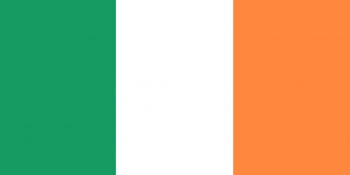
Irish Flag
Ireland’s press council and ombudsman received 464 complaints in 2018, 134 more complaints than in 2017.
Most of the complaints (339 of the 464) were about national newspapers, but the ombudsman’s report noted that 160 of the complaints addressed one cartoon, the Irish Independent‘s “rosarectomy” cartoon.” That complaint, as iMediaEthics previously reported, showed a surgeon removing rosary beads from a woman and was published with coverage of Ireland’s abortion vote. The press ombudsman dismissed complaints about the cartoon, saying that while it may have offended readers it didn’t break press guidelines.
The report explained the reason for the complaints.
- Prejudice 47.9% (which mostly concerned that rosary cartoon)
- Truth and Accuracy 20.2%
- Privacy 13.1 %
- Reporting on children 5.8%
(Court reporting, respect for rights, fair procedures and honesty, and distinguishing fact and comment each received about 3% of the complaints. There were no complaints about source protection.)
Of the 464 complaints, more than half were dropped, 30 were decided by the ombudsman, 24 were resolved, and 111 were not relevant to the ombudsman’s purview.
How did the ombudsman rule in those 30 cases he issued decisions on? Only ten ended up in rulings against a news outlet, and 15 were dismissed (four cases were resolved before ruling and one was dismissed for lack of evidence).
The ombudsman, Peter Feeney, listed the ten complaints that prompted rulings against news outlets. They were: an article from Village which reported a claim as a fact; a ruling against the Irish Daily Star for publishing a photo of a child at a funeral; a Wexford People article about a sexual assault victim; an Extra photo of a woman outside her house; a Sunday Times article that included too much information about a suicide; an Irish Independent and a Sun article that included personal details about a woman’s family; an error in an Irish Examiner article; an error in an Irish Independent article about wind farms; and a Village article that didn’t give someone the chance to comment before publication.
The report also broke down how the 24 cases were resolved independent of the ombudsman. In 3 cases, a news outlet published a correction or clarification; in three cases, a news outlet published a response from a subject of an article; in 11 cases, the news outlet edited or deleted content; and in seven cases, the news outlet either explained what prompted the article or discussed how it will cover the issue in the future.
Ireland’s press council and ombudsman released their annual report May 29. The report identified two “major threat[s] to press freedom in Ireland” as financial — advertising and circulation losses — and the Defamation Act of 2009, which was supposed to be reviewed back in 2014 but wasn’t until 2016. Even then, the review wasn’t released. Under Ireland’s defamation law, news outlets can be ordered to pay “excessive” amounts, the report says. And, since the act hasn’t been updated since 2009, news outlets effectively self-censor their reporting because they are concerned about giant libel losses if wrong, the report explains.
Feeney told iMediaEthics that at the report’s launch, Ireland’s Chief Justice Frank Clarke suggested the ombudsman’s process as a possible “model which could be used by other bodies to reduce the volume of issues which appear before the courts.”




Comments Terms and Conditions